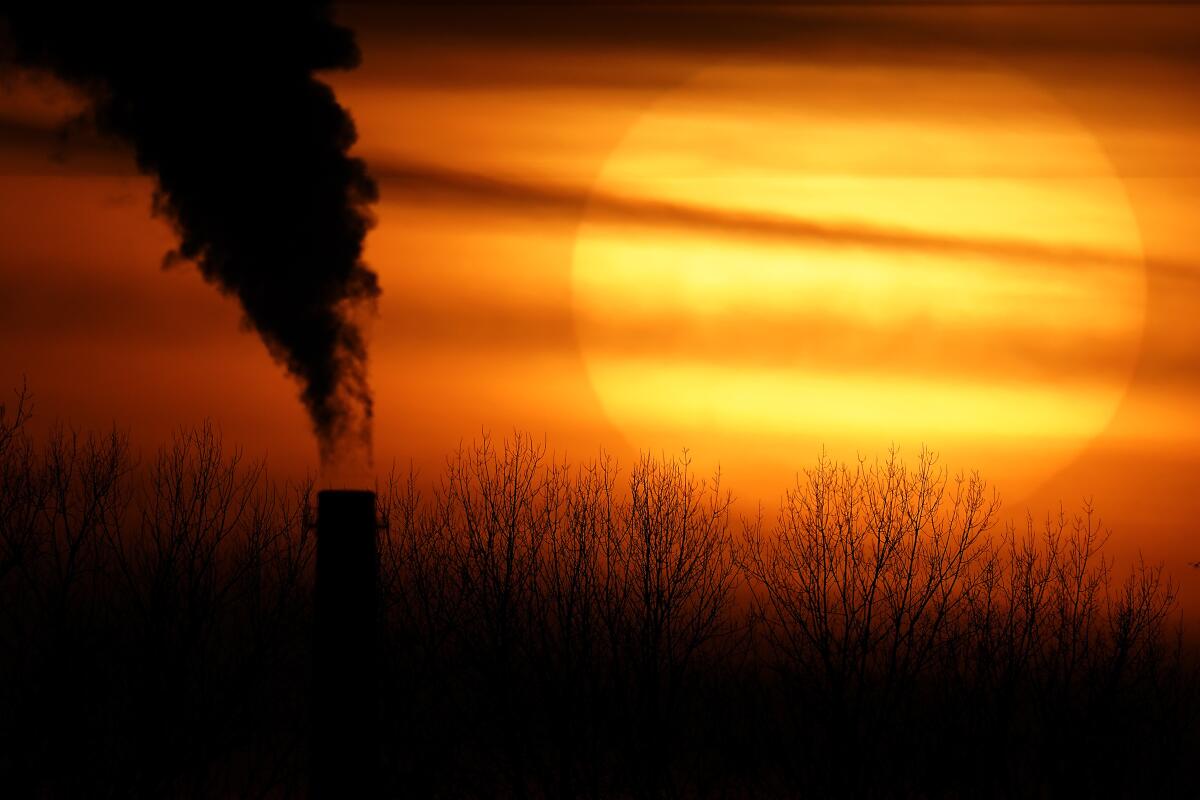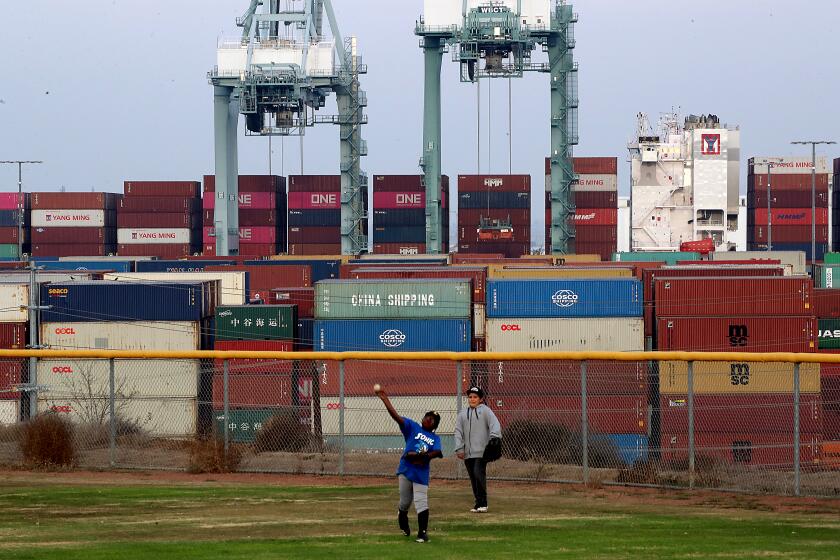Editorial: 5 reasons for frustration — and hope — as the world prepares for another U.N. climate summit

- Share via
World leaders are meeting in Egypt next week for this year’s United Nations climate summit. Swedish climate activist Greta Thunberg is planning to skip COP27, calling it little more than an occasion for greenwashing. She’s right to be frustrated with the state of the global response to this crisis.
The world is way off track. Most governments are falling far short of their climate goals, and the window is rapidly closing to prevent a dangerous overheating of the planet, a new United Nations report found. To avert catastrophic climate change, we must cut global greenhouse gas emissions by 45% by 2030, but world leaders’ current commitments will cut them by only 5% to 10%.
The only way to limit global warming to 2.7 degrees Fahrenheit or “well below” 3.6 degrees, the goals nearly every nation agreed to under the 2015 Paris agreement, is with bold, transformative policy shifting from fossil fuels to renewable energy. But instead, global average temperatures are on track to rise an unthinkable 5 degrees above preindustrial levels by century’s end.
The oil industry wants to put a referendum on the ballot to overturn California’s ban on neighborhood drilling. Californians shouldn’t fall for it.
Few nations have improved their climate ambitions. At the 2021 summit in Glasgow, Scotland, countries agreed to revisit and strengthen their 2030 targets by the end of this year, but progress has been “woefully inadequate,” according to the U.N. So few nations have increased their commitments since then that they amount to only about one-tenth of the emissions reductions pledged in the lead-up to last year’s summit.
“That signals that we’ve hit a plateau in terms of what countries are going to put on the table,” said Taryn Fransen, a senior fellow in the Global Climate Program at the World Resources Institute think tank.
Most countries just can’t quit fossil fuels. While most nations have targets to increase renewable energy production, few have even committed to cutting fossil fuels. Only 51 countries’ plans have any measures pertaining to fossil fuel consumption, and only eight of those would actually ramp down or phase out consumption, according to an analysis by the World Resources Institute.
That’s totally at odds with the environmental and economic imperative to end fossil fuels, as U.N. Secretary-General António Guterres has said, “before we incinerate our only home.”
But even with the bad news, there are some grounds for optimism going into the summit.
Air pollution at the ports of L.A. and Long Beach surged dramatically during the pandemic. To fix this, city and port officials need to act fast.
Renewables are looking brighter. It’s likely that Russia’s invasion of Ukraine will speed up the global shift from fossil fuels to renewable energy rather than slow it down, as was feared.
The invasion triggered the worst global energy crisis since the 1970s, prompting some countries to accelerate the deployment of renewable energy. A report by the International Energy Agency now predicts demand for fossil fuels will peak in the near future: coal within the next few years, natural gas by the end of the decade and oil by the mid-2030s. The transition from burning these dangerous, planet-destroying fuels still isn’t happening nearly fast enough, but at least their decline is in sight.
The U.S. and Brazil can now lead on climate. The United States can finally approach the negotiations at the meeting from a place of credibility, now that President Biden has signed the Inflation Reduction Act, the nation’s first significant climate legislation. In Brazil, leftist former President Luiz Inácio Lula da Silva, who campaigned on protecting the Amazon rainforest, defeated far-right President Jair Bolsonaro. “Brazil is ready to resume its leading role in the fight against the climate crisis,” Lula said after his victory was declared Sunday.
The Brazilian election result is a hopeful sign for the preservation of a region often called the “lungs of our planet” and a place of unmatched biodiversity. It shows how much the fight for democracy and climate action are intertwined. Let’s hope it’s an indication of better things to come.
As world leaders prepare for yet another climate summit, we cannot afford another year of insufficient and incremental action against the greatest threat to humanity.
More to Read
Toward a more sustainable California
Get Boiling Point, our newsletter exploring climate change, energy and the environment, and become part of the conversation — and the solution.
You may occasionally receive promotional content from the Los Angeles Times.












